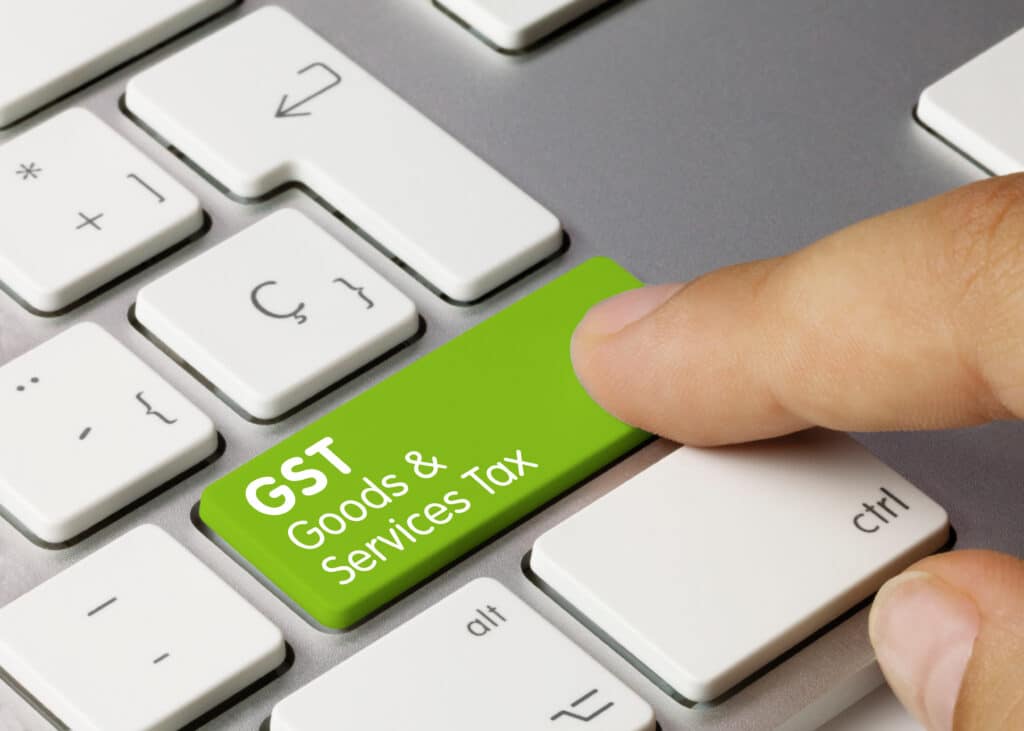Corporate Bookkeeping 101: Your Easy How-To Guide

Posted on: October 8, 2024
Effective bookkeeping is the backbone of any successful business.
Whether you need help with bookkeeping for your small business or advice about best practices, we’re here with all the information you need for staying compliant with CRA regulations, making informed business decisions, and preparing for tax time. At NowCPA, we understand the challenges business owners face, and we’re here to provide practical tips to make your life easier. Bookkeeping is about to get a whole lot simpler.

Corporate Bookkeeping Basics
1) Choosing Your Receipt System
First off, how do you like to keep your receipts? Piled up in a drawer, or neatly organized in a digital app? Whether you’re old-school paper or prefer digital, the key is making it easy for you to find what you need, when you need it. For those sticking with paper, consider organizing your receipts by vendor or by month. This can really help when you need to look something up quickly.
Whichever method you choose, remember that consistency is key. Don’t forget, holding onto those receipts isn’t just good practice—it’s a requirement. For the tech-savvy, apps like Hubdoc, Dext, or storing them on Dropbox or OneDrive can be lifesavers. They keep things clean and searchable by vendor or date!
Pro Tip: Categorize your receipts! Allocate expenses to appropriate categories (e.g., office supplies, travel, marketing, etc.).
2) Keep Business and Personal Separate
Got your business bank account set up? Perfect! If not, let’s get that sorted ASAP. It’s super important to keep your personal shopping out of your business finances. Trust me, it makes keeping track of your spending so much simpler. And when it’s tax time, you’ll be thanking yourself for this little bit of discipline!
This practice also helps in assessing your business’s performance. When everything is separate, it’s much easier to determine how much your business is earning and your personal spending. And if you ever find yourself in a crunch, pinpointing problems becomes much simpler.
3) Thinking About a Bookkeeper?
If keeping up with the books is getting to be a bit much, it might be time to consider bringing a bookkeeper on board. Finding someone who really gets your business can make a world of difference. Even if you go down this route, staying organized is still a must—you’ll want to keep everything streamlined to make the most of your bookkeeping support.
👉 We’re here to lend a hand too! At NowCPA, we’re all about supporting you not just during tax season, but all year round. Need help setting up your systems, corporate bookkeeping, or just some friendly advice on managing your finances? Let’s set up a time to chat. You can also click here to learn more about our professional bookkeeping services.
Key Considerations for Bookkeeping
- Compliance with CRA Regulations is Essential: The Canada Revenue Agency (CRA) mandates that all businesses keep detailed records to support income, deductions, and tax credits reported on their tax returns. Inadequate records can lead to audits, penalties, or disallowed expenses, making efficient record keeping for small business owners essential. Generally, you have to keep your records (whether paper or electronic) for at least six years from the end of the tax year to which they apply.
- Organized Records = Informed Decision-Making: Good corporate bookkeeping provides a clear picture of your financial health. It allows you to track revenue, monitor expenses, and identify trends, helping you make informed decisions about your business’s future. Not only does proper organization help keep you CRA-compliant, it makes your life easier too.
- Save Time & Simplify Tax Preparation: Accurate records greatly simplify the tax filing process. When everything is well-organized, you can easily compile the necessary documents, ensuring you don’t miss out on any deductions or credits. So, it quite literally saves time and money.
What Records Do I Need to Keep for a Small Business?
1) Financial Statements
- Income Statement
- Purpose: Shows profitability over a specific period.
- Key Elements: Revenue, cost of goods sold (COGS), gross profit, operating expenses, and net profit.
- Example: A retail store generates monthly income statements to track seasonal trends in sales and adjust inventory purchases accordingly.
- Balance Sheet
- Purpose: Provides a snapshot of the company’s financial position at a specific point in time.
- Key Elements: Assets, liabilities, and shareholders’ equity.
- Example: An IT consulting firm reviews its balance sheet quarterly to ensure it maintains a healthy balance of assets to cover liabilities.
- Cash Flow Statement
- Purpose: Tracks cash inflows and outflows, highlighting liquidity.
- Key Elements: Operating activities, investing activities, and financing activities.
- Example: A construction firm closely monitors its cash flow statement to manage project funding and ensure timely payments to subcontractors.
2) Supporting Documents
- Invoices and Receipts
- Retention: Keep all invoices and receipts, whether digital or physical, for at least six years as per CRA requirements.
- Categorization: Organize receipts by category and date for easy retrieval.
- Example: A catering business uses a receipt scanning app integrated with their accounting software to store and categorize receipts digitally.
- Bank Statements
- Verification: Regularly verify recorded transactions against bank statements.
- Retention: Keep bank statements for at least six years.
- Example: A nonprofit organization keeps both digital and physical copies of bank statements, ensuring they are easily accessible for audits.
- Contracts and Agreements
- Documentation: Maintain records of all contracts and agreements related to business operations.
- Example: A construction company keeps digital copies of all subcontractor agreements, making it easier to track project costs and obligations
- Payroll Records: Maintain detailed records of employee wages, deductions, and benefits.
3) Tax Records
- GST/HST Returns: Store copies of all filed GST/HST returns and supporting documents.
- Income Tax Returns: Keep copies of filed tax returns and notices of assessment from the CRA.
4) Operational Records
- Contracts and Agreements: Save all business contracts, lease agreements, and loan documents.
- Inventory Records: Track inventory purchases, sales, and adjustments.

Best Practices: Bookkeeping for Small Businesses
1) Implement a Maintenance Schedule
- Recording Transactions: Record all sales, purchases, receipts, and payments daily. This prevents backlog and errors.
- Monthly reviews: Be sure to set aside time each month to review the financial records of the previous month, checking things over and noting any issues that arise which may require your attention sooner rather than later.
- Annual audits: Conduct thorough reviews yearly with your accountant to ensure that all financial matters are in proper order and that nothing is overlooked or missed.
2) Train Your Team
- Segregation of Duties: Enforce approval authority by separating the person who authorizes payments from the person who records them (for example, the owner approves all significant expenditures, while the bookkeeper records them. This helps prevent fraud and errors by dividing responsibilities among different individuals. You can also have someone other than the bookkeeper reconcile bank statements (for example, an office manager reconciles bank statements monthly, while the bookkeeper handles day-to-day transactions.)
- Educate your staff: If you have a team, make sure they know the drill. It makes everyone’s lives a whole lot easier when everyone is on the same page regarding record organization. Having solid policies and procedures in place (especially for new employees) is very helpful. A team that records together, stays financially healthy together.
- Encourage good habits: Reward meticulous record-keeping for your team members. It sets a good example and again, helps make your life easier down the road (a common theme in this article). Plus, everyone loves a gold star!
3) Keep an Eye on the Future
- Plan for audits: Keep all records for at least six years after your last notice of assessment, as per CRA’s guidelines. Think of it as keeping breadcrumbs to help you find your way back in case you need to retrace your steps. Click here to learn more about CRA business audits.
- Year-End Preparation: Preparing for the year-end involves ensuring all accounts are reconciled and reports are up-to-date. Key steps include gathering all inventory counts, calculating and recording depreciation for fixed assets, organizing your financial records, and finding a great accountant to ensure compliance and maximize deductions. Remember, professional accountants are knowledgeable about the latest regulations and best practices and can provide strategic advice to optimize financial performance. Click here to schedule a call with an experienced CPA.
Choosing the Right Bookkeeper
Don’t want to risk doing the books yourself? Or, you may simply not have the time. Finding the perfect bookkeeper is crucial for the smooth financial operation of your business. In Canada, where compliance with CRA regulations is essential, making an informed choice can save you time and money. Here are five key factors to consider when choosing a bookkeeper.
1. Professional Qualifications and Experience
Ensure your bookkeeper has the proper qualifications and relevant experience. Certifications from recognized bodies like the Certified Professional Bookkeepers of Canada (CPB Canada) or Chartered Professional Accountants (CPA Canada) indicate a solid foundation in bookkeeping principles. Additionally, look for experience in your specific industry to ensure they understand the unique financial challenges you face. For instance, a bookkeeper experienced in retail will better manage inventory and sales tax issues compared to one who primarily handles professional services.
2. Knowledge of CRA Regulations
A thorough understanding of CRA (Canada Revenue Agency) regulations and your corporate obligations as a business owner is non-negotiable. Your bookkeeper should be knowledgeable about the latest tax laws, GST/HST regulations, and payroll requirements. This expertise ensures your business remains compliant and avoids costly penalties. During the interview, ask about their experience with CRA audits or how they stay updated with regulatory changes.
3. Proficiency with Accounting Software
In today’s digital world, proficiency with accounting software is essential. Ensure your bookkeeper is skilled in using tools like QuickBooks Online, Xero, or Sage Business Cloud. These platforms help streamline financial processes, and a proficient bookkeeper can maximize their potential. For example, QuickBooks Online integrates well with other business tools, making it ideal for small to medium-sized businesses. Xero offers excellent invoicing and bank reconciliation features, while Sage Business Cloud is great for businesses with advanced inventory management needs.
4. Attention to Detail and Communication Skills
A good bookkeeper must have a keen eye for detail and strong communication skills. Small errors can lead to significant financial discrepancies, so meticulousness is vital. Additionally, your bookkeeper should be able to explain financial concepts clearly and keep you informed about your business’s financial health. Regular updates and transparent reporting are essential for maintaining trust and ensuring you’re always aware of your financial standing.
5. Reliability and Adaptability
Trust and reliability are paramount when it comes to handling sensitive financial information. Look for bookkeepers with positive references and a track record of dependability. Furthermore, your business needs will evolve, and your bookkeeper should be adaptable and open to learning new skills or software. This flexibility ensures they can continue to meet your business’s financial needs as it grows.
Selecting the right bookkeeper is a crucial decision for any business owner. By focusing on professional qualifications and experience, CRA knowledge, software proficiency, attention to detail and communication skills, and reliability and adaptability, you can ensure your financial operations run smoothly and your business remains compliant with all regulations. A good bookkeeper is more than just a number cruncher; they are a valuable partner in your business’s success.
Bookkeeping Software (Pros & Cons) for Small Businesses
Modern accounting and bookkeeping software can significantly enhance bookkeeping efficiency (although it is no replacement for an accountant, for small business bookkeeping it can certainly help you until you reach the point where you’re ready to grow and require the advice and support of an expert). Remember, professionals ensure accuracy and compliance, reducing the risk of errors.
Here’s an in-depth look at some popular accounting software options:
QuickBooks Online (QBO)
- Features: Invoicing, expense tracking, payroll, tax calculations, and financial reporting.
- Integration: Connects with numerous third-party apps for CRM, inventory management, and more.
- Suitability: Ideal for small to medium-sized businesses looking for comprehensive features.
Example: A mid-sized manufacturing business uses QuickBooks Online to manage invoicing, track expenses, and integrate with their inventory management system, ensuring seamless operations.
Xero
- Features: Invoicing, bank reconciliation, expense claims, and fixed assets.
- Integration: Strong integration with various business applications and banks.
- Suitability: Suitable for businesses needing flexibility and strong integration capabilities.
Example: A tech startup uses Xero for its flexibility and integration with project management tools, helping them track project costs and profitability.
Wave
- Features: Invoicing, expense tracking, receipt scanning, and accounting reports.
- Cost: Free basic services, with paid options for payroll and payment processing.
- Suitability: Ideal for freelancers, startups, and small businesses with limited budgets.
Example: A freelance graphic designer uses Wave to send professional invoices and track expenses without incurring additional costs.
Corporate Bookkeeping in Alberta with NowCPA
Effective bookkeeping for small business owners is not just about staying compliant with CRA regulations; it’s about empowering your business with accurate information to drive success. By adopting digital tools, maintaining regular updates, and staying organized, you can streamline your record-keeping process and focus on what you do best—growing your business. At NowCPA, we’re here to help you navigate the complexities of accounting and corporate bookkeeping and offer tailored solutions to meet your unique business needs.
📞 Contact us today to learn more about how we can support your accounting and financial management efforts and for all your Medicine Hat bookkeeping needs (or anywhere, really!).
👉 Check out our blog for more tax and business tips!